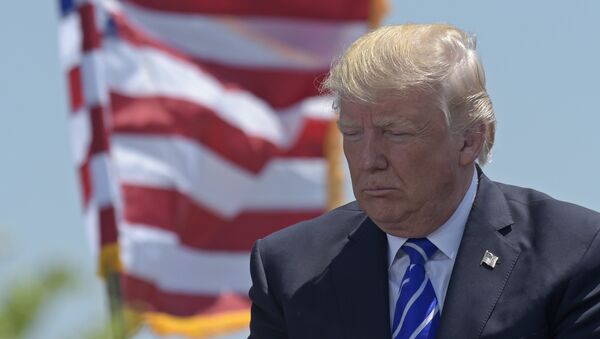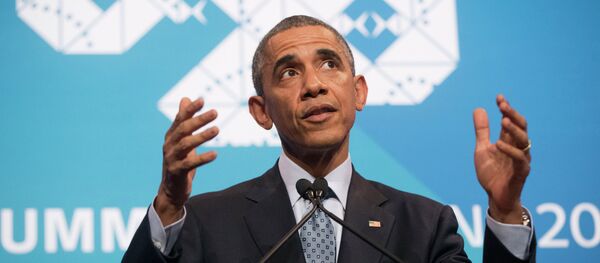Trump spoke alongside NATO Secretary-General Jens Stoltenberg, German Chancellor Angela Merkel and leaders of other NATO nations at the unveiling of memorials to the Berlin Wall and the alliance’s Article 5 collective defense principle.
"The NATO of the future must include a great focus on terrorism and immigration as well as threats from Russia and on NATO’s eastern and southern borders," Trump stated.
He charged "thousands and thousands of people" were entering Europe and the United States unabated.
Trump's statement reminded former US leader Barack Obama's statement when he listed Russia, together with Daesh terrorist group and other global problems such as Ebola, as the key threats to US national interests.
Interestingly, a year after Obama dubbed Russia a threat together with Daesh, Moscow started its so far more successful than that of the US-led coalition's aerial campaign against terrorists in Syria, which resulted in the liberation of Aleppo and Palmyra. Moreover, Russia has repeatedly sent humanitarian aid to Syrians in besieged regions, as well as field hospitals and demining squads to the war-torn country.
Kremlin spokesman Dmitry Peskov said earlier that Moscow-Washington ties have reached a new low due to the new US administration's actions.
NATO has set a sustainable course for the alliance’s expansion by engaging Eastern European states since 2014, explaining the expansion as a response to Russia’s alleged meddling in the Ukrainian conflict. Moscow has repeatedly refuted such allegations, and regards NATO's encroachments as provocative. At the NATO July summit in Warsaw, it was decided that the military alliance would send multinational battalions to Latvia, Lithuania, Estonia and Poland, at the request of these countries.



